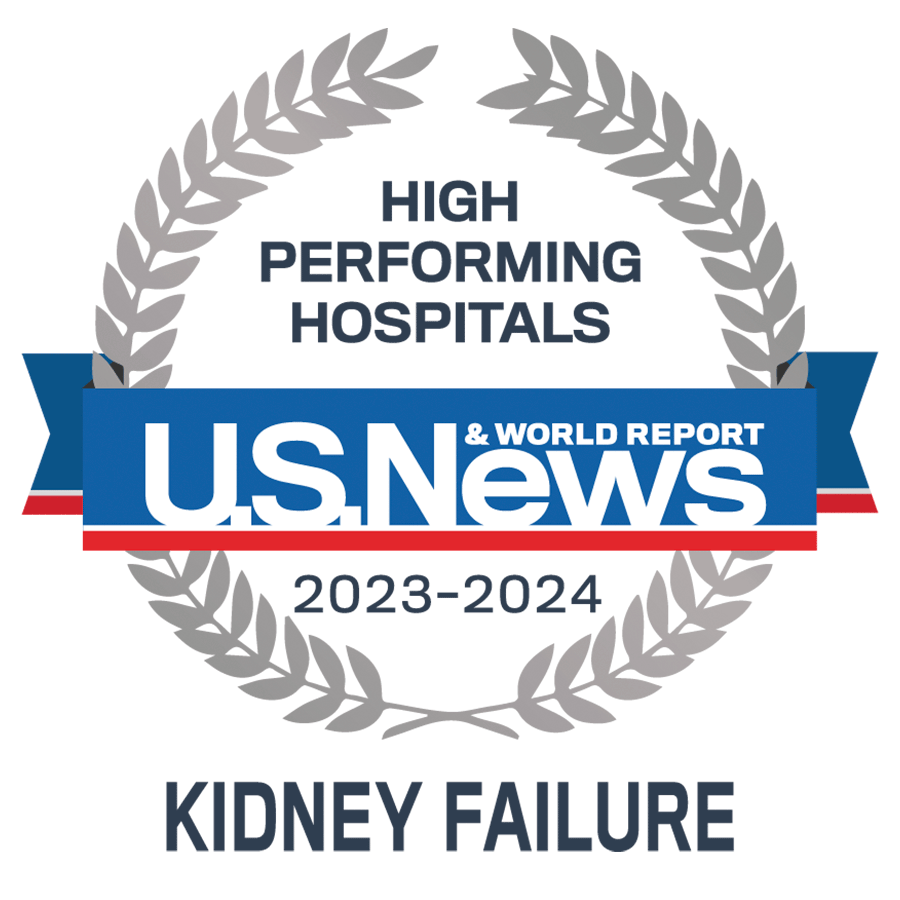If your kidneys fail, you need treatment to replace the work they normally do. Signs vary from patient to patient but can include:
- Decreased urine output
- Loss of appetite
- Swelling, due to fluid retention
- Nausea and vomiting
- Changes in stools
- Fatigue or weakness
- Changes in mood or mental status
- Shortness of breath
- Acute kidney failure can also develop into end stage renal disease (ESRD) or renal failure.
Treatment
Treatment is divided into hospital and after discharge care. During hospital stay, the goal is to allow the kidneys to heal and prevent further buildup of fluids and waste products in the body. Certain foods may be restricted to keep you healthy and reduce stress on the kidneys. These foods include protein (meat, milk products, eggs), salt and potassium found in some fruits and vegetables and salt substitutes. Fluids, including anything that becomes a liquid at room temperature, such as ice, Jello, yogurt and ice cream, may also be restricted.
Dialysis may be done to remove extra fluids and toxins. This procedure often makes you feel better and helps control kidney failure by removing fluid and extra electrolytes. Electrolytes are salts and minerals that affect heart function, muscle function and fluid intake and output in the body.
Both during and after your hospital stay, you will be encouraged to stay active, cough and breathe deeply to help prevent infection. And because constipation may occur due to fluid or diet restrictions, decreased activity and medicines, be sure to take a stool softener, even if constipation has not been a problem in the past.
You will need frequent outpatient follow-ups with your kidney doctor; please inform the doctor of any other scheduled tests. Due to low immunity to infection, you may need to follow special precautions, such as taking antibiotics to prevent infections.
For patients with end-stage renal/kidney disease (ESRD), treatment options are dialysis or a kidney transplant; each has benefits and drawbacks. No matter which you choose, you'll need to make some changes, including how you eat and plan your activities. But with the help of our team, family and friends, most people with kidney failure can lead full and active lives. If you choose to have a kidney transplant, we partner seamlessly with our transplant program, a top 10 organ transplant program by volume in the United States with patient outcomes above the national average.
Why seek treatment at Ohio State
Ohio State is recognized by U.S.News & World Report as one of the nation's best hospitals for urology and nephrology. Schedule an appointment with Ohio State's urology and kidney experts. Ohio State is a leader in vascular access, having three interventional nephrologists, physicians specializing in the maintenance of vascular access for patients undergoing dialysis. Vascular Access Centers are located at University Hospital and University Hospital East.

